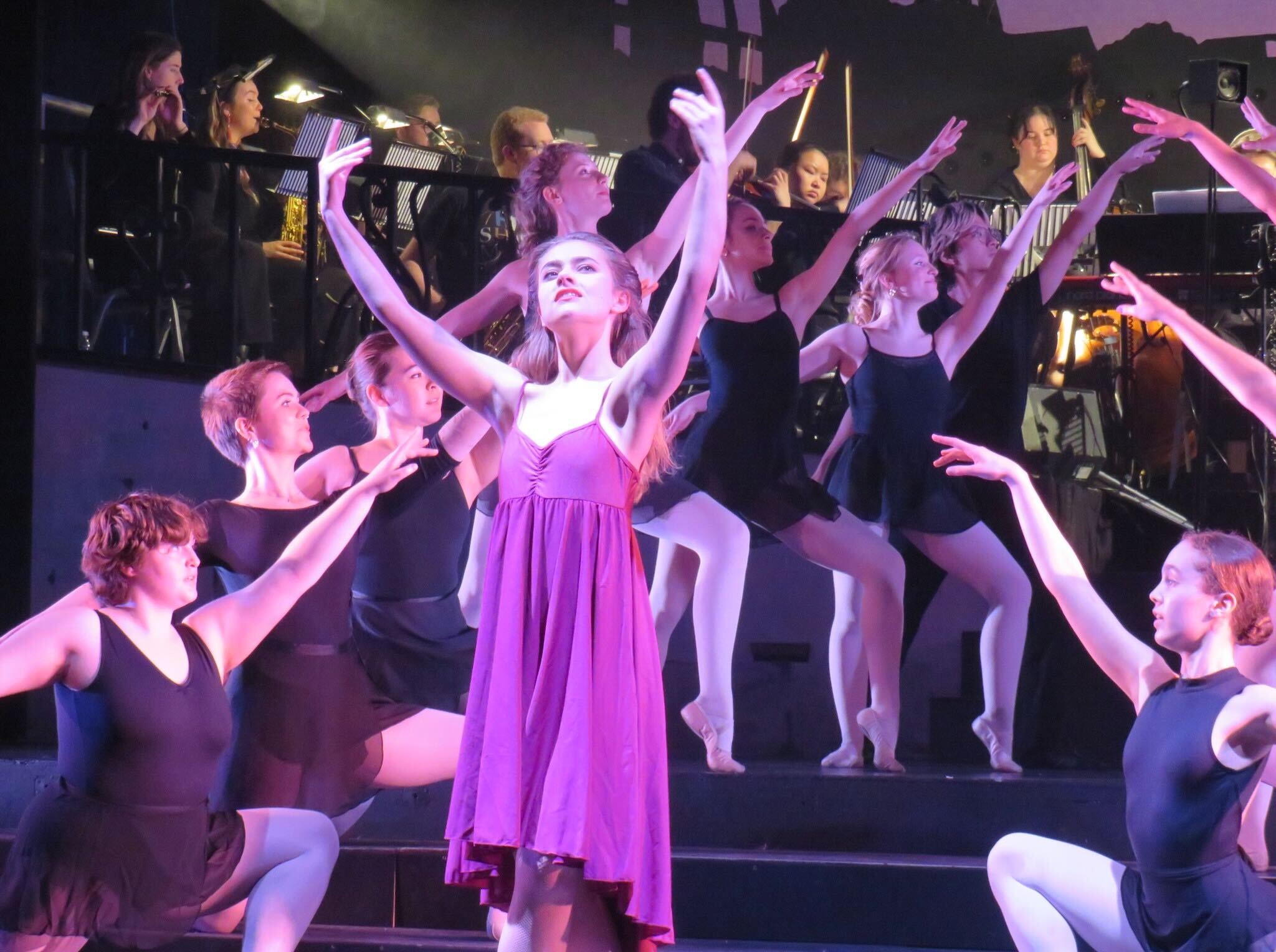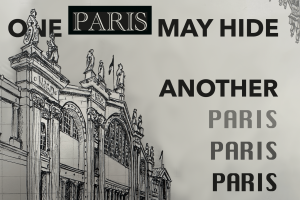
Review: An American in Paris
by Clemmie Read | February 23, 2023
The keynote of An American in Paris is struck about halfway through the first song, when the singer Henri Baurel starts telling off the composer. ‘I Got Rhythm’ is far too sombre for his taste: “Look at their faces, people need to laugh! Paris needs it!” “Who said music has to cheer people up?” “I say it!” An American in Paris says it too. It belongs to a genre of musical we don’t see very often these days. Most hit musicals (Hamilton, Evita, Les Misérables) tell proper stories. They use their songs as modulations of mood, but no one ever doubts that if you literally walked into the room, George Washington wouldn’t be dancing. Then there are musicals like Singing in the Rain, 42nd Street, and An American in Paris. Emerging from post-war Hollywood, the singing and dancing is the whole point. It paints over a devastating and tragic backdrop. All these musicals want is to cheer people up. Because people really do need to laugh, after all.
No wonder 00Productions chose 5th week to put on An American in Paris at the Oxford Playhouse. An audience with the blues couldn’t ask for a lighter plot. Jerry Mulligan (Molly Jones), a GI-turned-artist who decides to stay in Paris after seeing the heroine-to-be in the street, falls in with wounded composer Adam Hochberg (Cormac McDiamond), and the budding nightclub singer Henri (George Vyvan). Jerry and Adam become involved with the Paris Ballet, Adam composing and Jerry drawing sets. Of course, they both fall for the same girl: the enchanting dancer Lise Dassin (Rachel Smyth), who unbeknownst to them, is the girl they’ve been encouraging Henri to propose to. She kisses Adam on the cheek, and he is instantly bewitched. Meanwhile, Jerry woos her determinedly, nicknames her Liza, and meets her secretly by the banks of the Seine (they’re the couple to root for!). On it goes from there, as they face tenuous obstacles to their happiness: Henri’s family disapprove of his singing, Lise is obliged to marry Henri because his family sheltered her during the war when her own Jewish family went into hiding, and Jerry becomes involved with the wealthy Milo Davenport (Jelani Munroe). These problems resolve themselves swiftly: Henri’s parents get over it in about twenty seconds, Lise realises she should follow her heart, and Milo tells Lise that Jerry is really in love with her and goes off with Henri instead. We never doubt for a second that Jerry and Lise will end up together, and everything will be fine. Nor, it would seem, do they. Jerry expresses his anger by tap-dancing off stage very crossly and has the audience in stitches. Henri tells Adam to get out of his song, to “toe the mark,” but it naturally turns into a dance move, with legions of chorus girls elegantly “toeing the mark” behind him. The plot is more or less an excuse for a song-and-dance showcase. It’s absolutely delightful.
It is also a very ambitious choice for a group of Oxford students who are not professional dancers. The hit West End revival chose to cast ballet dancers as the leads and then train them in acting and singing. Ollie Khurshid, Cam Tweed, and Jake Sternberg have to work the other way round with a student ensemble. It’s not easy – and the French accents are a bit hit-and-miss – but they warm up and are huge fun. There’s a wonderful classic Hollywood multi-coloured umbrella dance sequence, and of course, there’s ‘I’ll Build a Stairway to Paradise.’ Henri’s star moment is replete with a smoke machine, chorus girls in fantastic silver sequins, and the most resplendent white feather fans imaginable. The whole thing is an exercise in escapism. You can’t think about “that filthy war” if you’re spinning around so fast your top hat nearly flies off.
This production is made by its exceptionally talented central cast. All the principal actors are sensationally good, from Elise Busset’s wonderfully put-together Madame Baurel (in an enviable purple suit straight out of Dior’s New Look), to Jelani Munroe’s hilarious socialite Milo Davenport, who is throaty, fabulous (“Life is stressful…I’ve heard”), and desperate to join in on the dancing whatever it costs her. Then there are the self-proclaimed “three musketeers,” who play off each other perfectly. Molly Jones is an ingeniously gender-flipped Jerry Mulligan and plays him with such mischief and sincerity that, piping away an octave up from the score, he has a touch of Peter Pan. George Vyvan, as the hilariously touching and confused Henri, pulls off a wonderful turnaround from a distressed naïf scribbling out his proposal drafts to a nightclub star. And Cormac McDiamond, as our narrator Adam, is extraordinary. He has stand-out charisma onstage, just as he did in Max Morgan’s Fêtid last term. When he sang ‘But Not for Me,’ an outstanding duet with Munroe’s Milo, I found myself in tears in this silliest of productions (and not just because it’s 5th week). And if we are here for a song-and-dance showcase, then Rachel Smyth is deservedly the star, the triple-threat performer the directors must have been dreaming of. She has a beautiful voice, and her ballet numbers are enchanting – it’s worth going just to watch her dance. We completely understand why they’re all so mad about her.
As mood-boosters go, An American in Paris is unbeatable. You leave grinning ear to ear: it’s such easy watching, and Gershwin’s score is designed for pure pleasure (it’s seen me through many an essay crisis). Best of all, you get to watch a central cast who could be on the West End in no time, and I hope one day will be. They have rhythm, they have music, they couldn’t ask for anything more. Neither could we. ∎
Words by Clemmie Read. Photography by Emi Sinclair.




